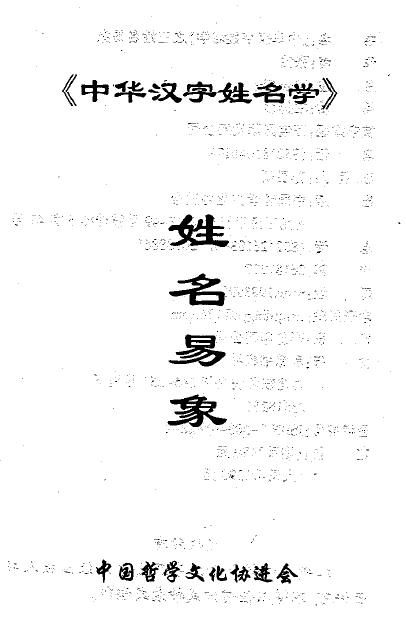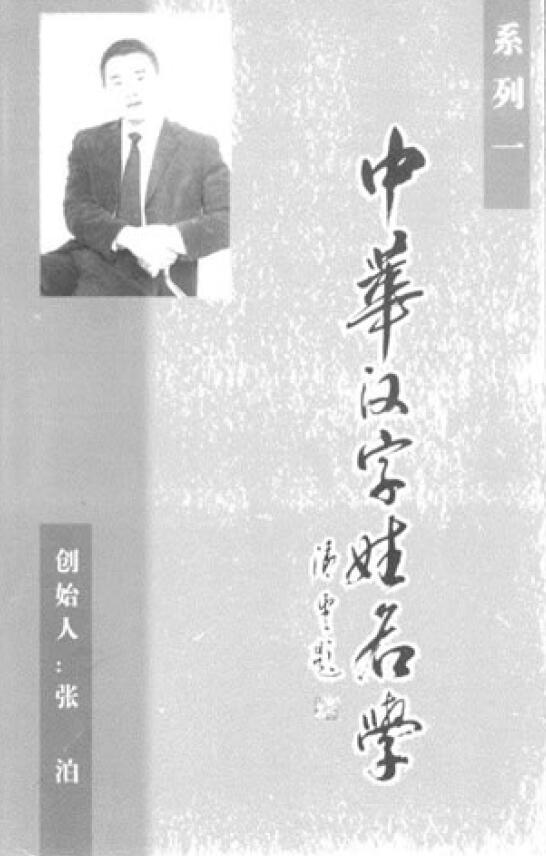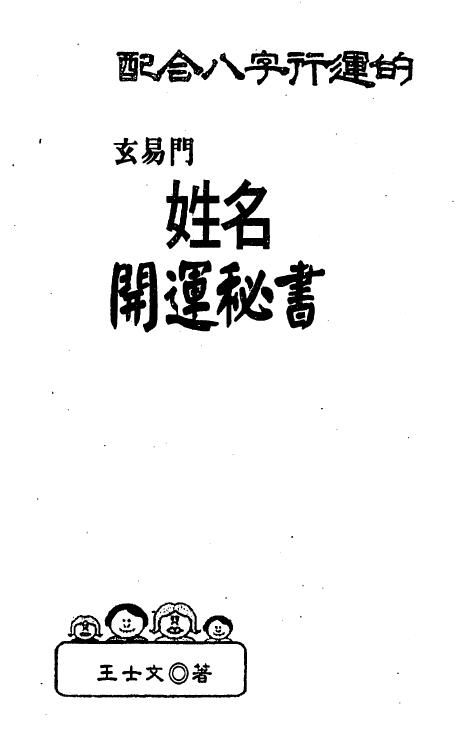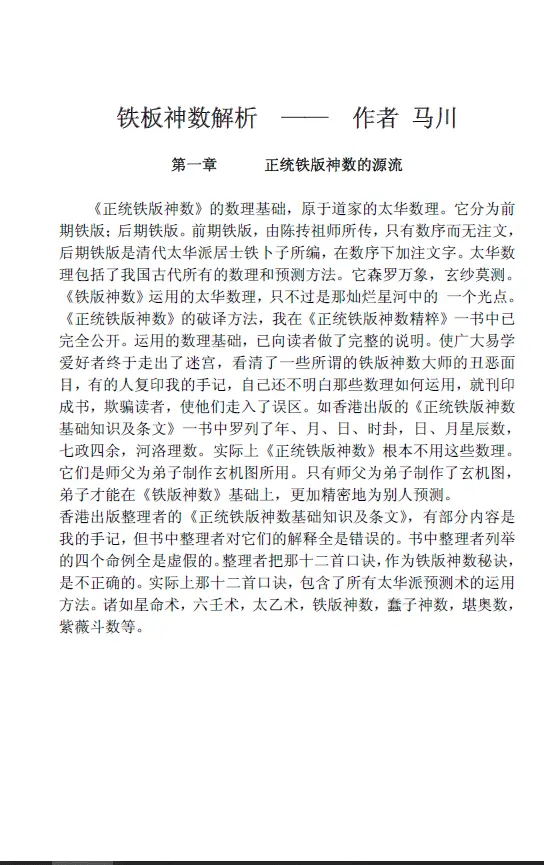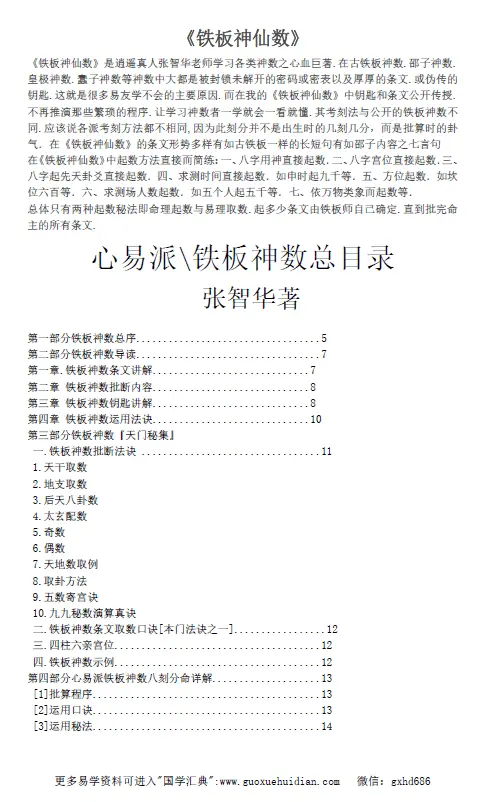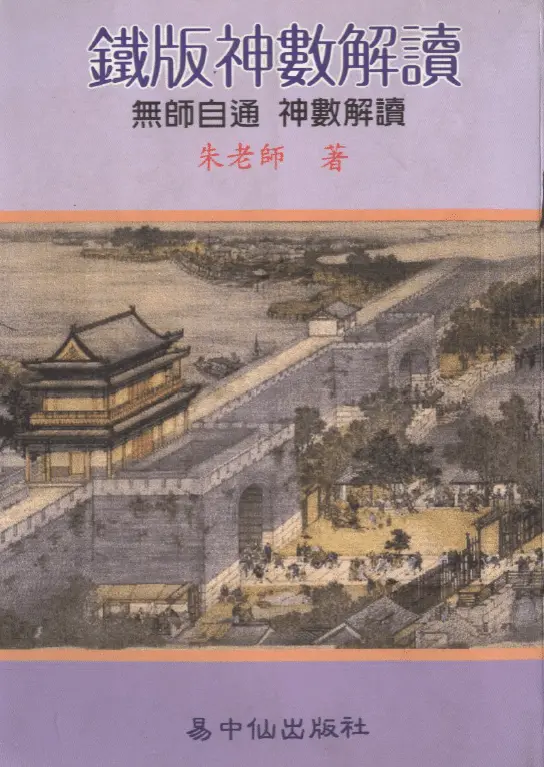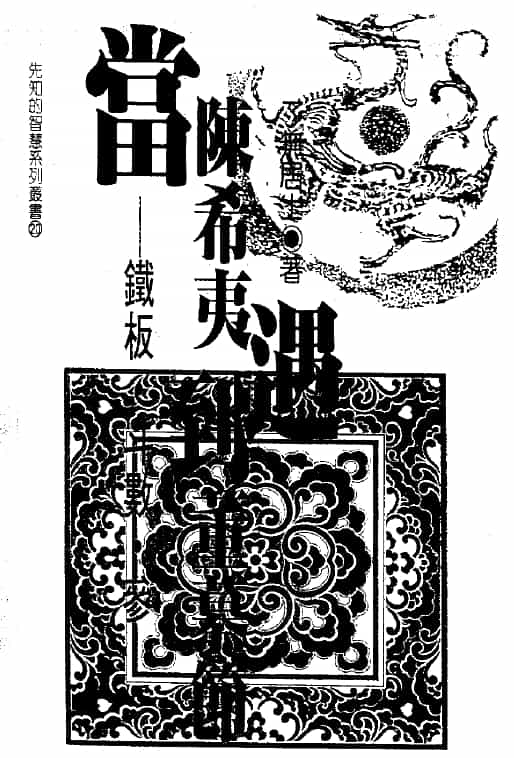Han Ling’s “Nine Palaces and Ten Gods Names Theory” 166-page double-page edition
Download Hanling’s “Nine Palaces and Ten Gods Names” 166-page double-page version PDF e-book. (For content clarity, please refer to the screenshot below) Introduction What exactly is “fate”? Humanity has been exploring the unpredictable future since the beginning of history. With the rise of modern science, the efforts of the ancients in this area have become in vain…
Download the 166-page double-page PDF e-book of Han Ling’s “Nine Palaces and Ten Gods Name Studies”. (Content clarity, please refer to the screenshot below)
Introduction
What exactly is “fate”? Humanity has been exploring the unpredictable future since the beginning of history. With the rise of modern science, the efforts of the ancients in this area have been in vain. Because modern people believe in science and believe everything they see. Classify all unpredictable and invisible fields as unscientific, and even call them superstitions. However, today’s modern people who think they are very scientific call all phenomena that cannot be explained from a scientific point of view superstitious and unscientific. This attitude itself is the most unscientific. After fully enjoying the high material civilization, modern people are gradually looking for the long-lost spiritual civilization. For some unexplainable phenomena, they are more likely to be explained by mystery or miracles. This attitude of emphasizing spiritual civilization also makes modern people People believe in cause and effect. The Buddha said: “If you want to know the fruit of the next life, you have to do it in this life.” Because, if you plant the “cause” of this life, you will naturally enjoy the “fruit” of the next life. From a scientific point of view, it means that you accumulate your energy (cause) in normal times. Maybe the energy is good (good cause), but there are also bad (evil causes). When the energy is accumulated to saturation, it will explode , When the time comes, whether you are enjoying the good cause or the evil result is your own doing. So the Buddha also said: “If you want to know the cause of the previous life, you will be the one who receives it in this life.” Twenty simple words explain the causal relationship between “fate” and “luck”. When it comes to the study of names, it originated from the ancient Yi Li thought, but unfortunately there has never been a specific system handed down. And where did the Taiwanese name theory come from? How did it develop into today’s situation where a hundred schools of thought are singing together? It turned out that as early as the 17th year of the Republic of China, Taiwan was in the era of Japanese occupation. Japanese Yi scholar Kumazaki Keno-style systematically organized the study of names, in line with the saying in “Book of Changes”: “A husband and a man who is in harmony with heaven and earth, It is in harmony with the sun and the moon, in the sequence with the four seasons, and in harmony with the ghosts and gods, so it is the three talents.” Kumazaki developed a system of names based on the three talents and added eighty-one smart numbers. It was applied in Japan and passed back to Taiwan during the Japanese occupation, but it has since become the basis of today’s name science in Taiwan. Whether a set of numerology theories can develop and spread depends on its own time and space background. In the early days of Taiwan’s rural society, the people’s lives were poor, and three meals a day were difficult to sustain. Few people were able to ask teachers to name their children, and they were all chosen by parents. Self is useless, and there is often a pattern of bad luck and bad luck in the name. Coupled with the fact that few people received early education, a set of Kumazaki’s name study can be used for decades. Nowadays, education is popularized, everyone’s knowledge level is improved, and there are more and more famous teachers who study names, but every famous teacher will encounter the same bottleneck when studying eighty-one smart numbers. Auspicious numbers are not auspicious. Readers can find from the names of early celebrities, movie stars, ministers, generals, and even presidents, down to common people and merchants, that most people have more strokes in their names than the lucky ones. Then, from the list of deaths in homicide, suicide, car accident, accident, drowning and other accidents contained in modern daily newspapers, it is found that there are more lucky names and few murderous names. Why is this so? Modern scholars began to have doubts about Kumazaki’s name theory. The more they studied, the more they found that there were many errors in the theory. In fact, it has reached the point where it cannot be used in today’s society. Gradually, a new school of name theory has sprung up like mushrooms after rain. Such as the study of zodiac names, the study of names in characters, the study of names in the Book of Changes, the study of names in constellations, etc., with such a wide range of schools of thought, it has made later scholars even more confused. In the early days, the author also started with the study of Kumazaki’s name study, and turned to the study of the name study of the Nine Palaces and Ten Gods in “Book of Changes” when encountering a bottleneck. This set of theory is completely based on the study of the traditional “Book of Changes” in our country. It does not use numbers to judge good or bad luck. The year, month, day, time, etc. of the occurrence of a person, event, place, or thing. After finishing my studies, the author practiced again and again on various occasions, conducted more detailed and in-depth research, and accumulated more than ten years of painstaking research. Written into “Nine Palaces and Ten Gods Names Theory”, hoping to provide further exploration and research needs for scholars who love this book.
Some screenshots
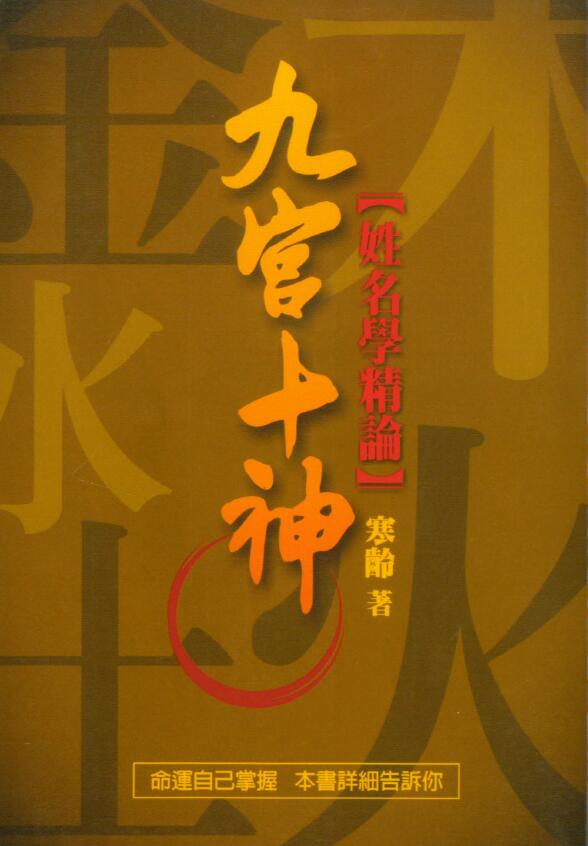
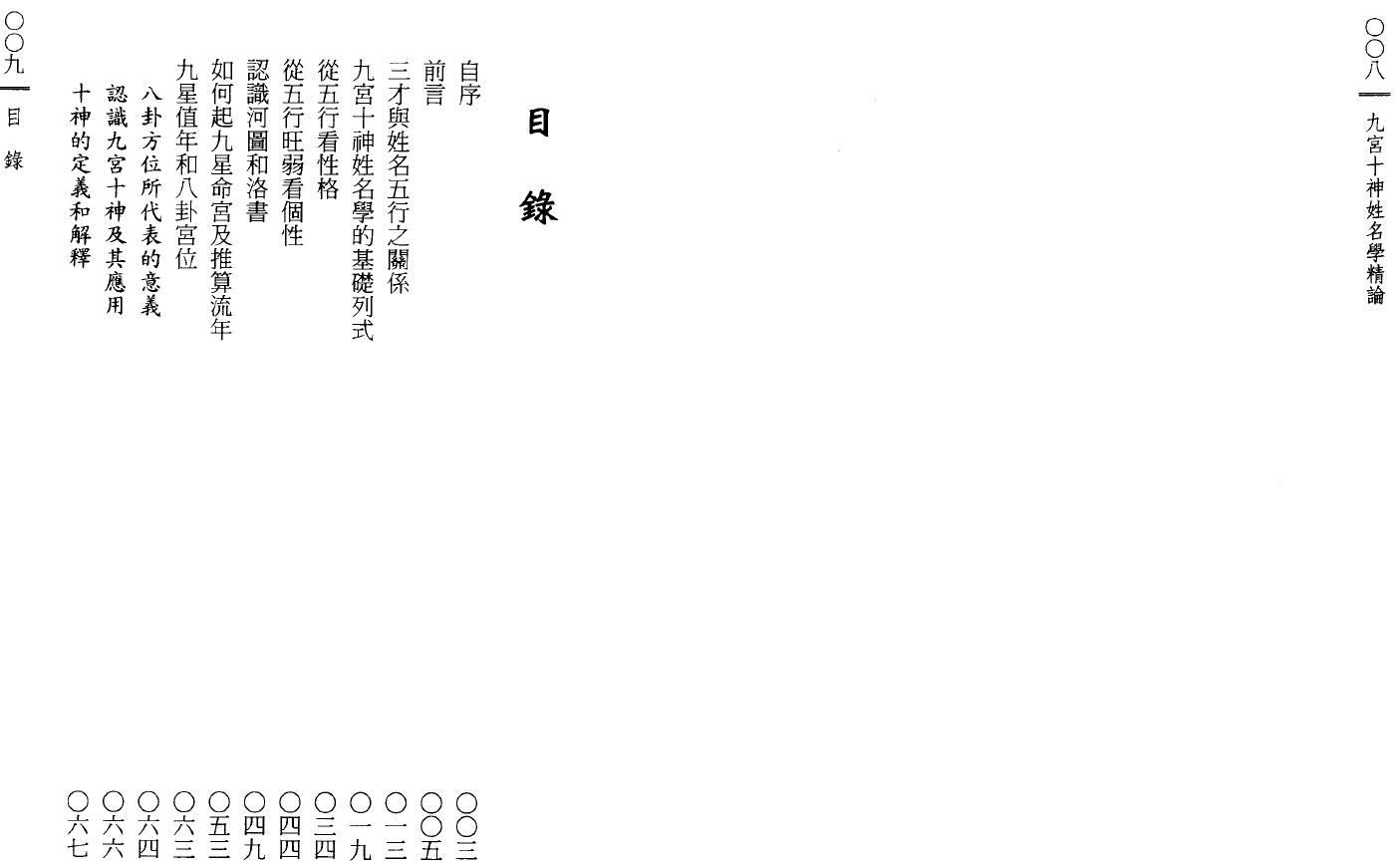
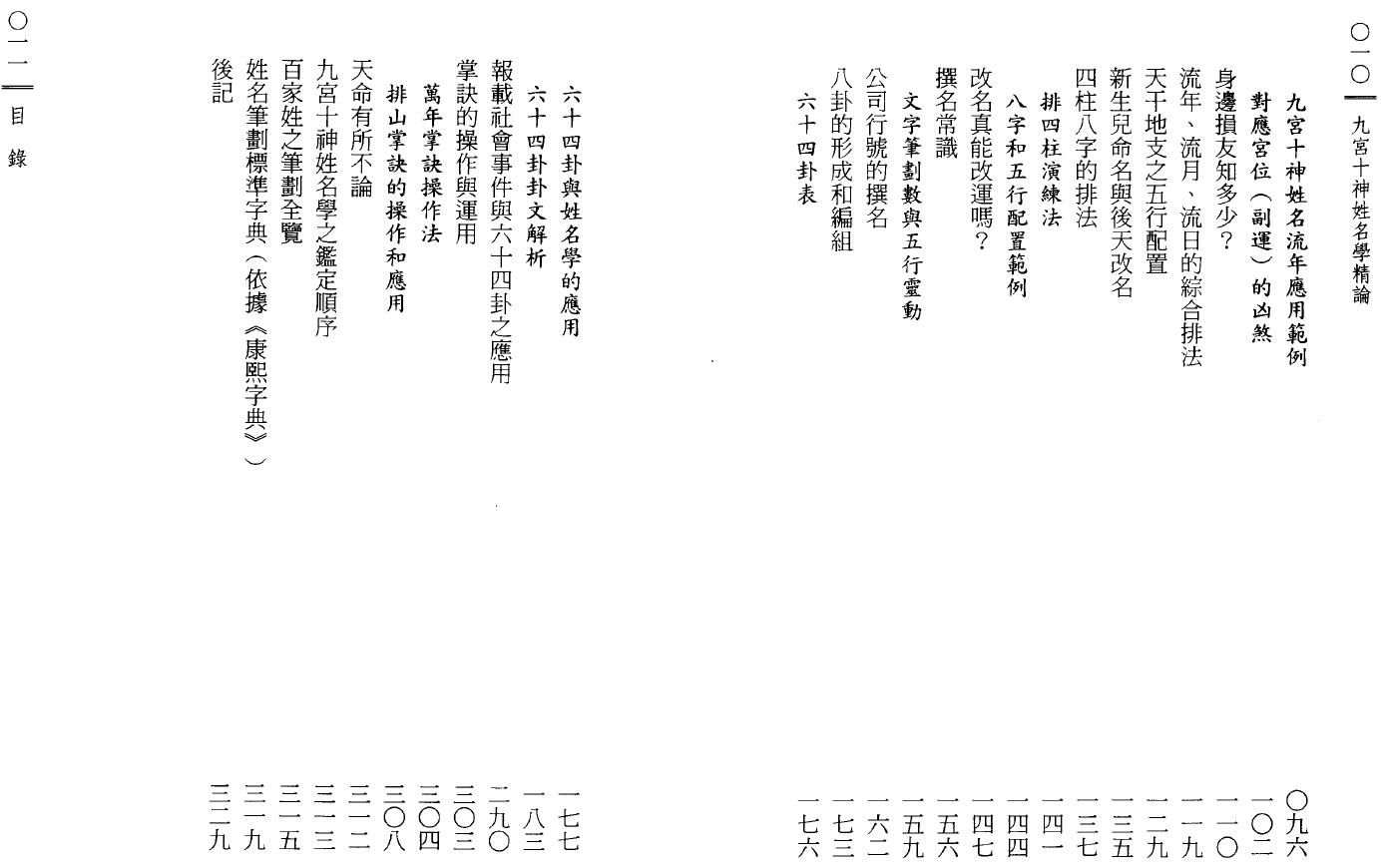
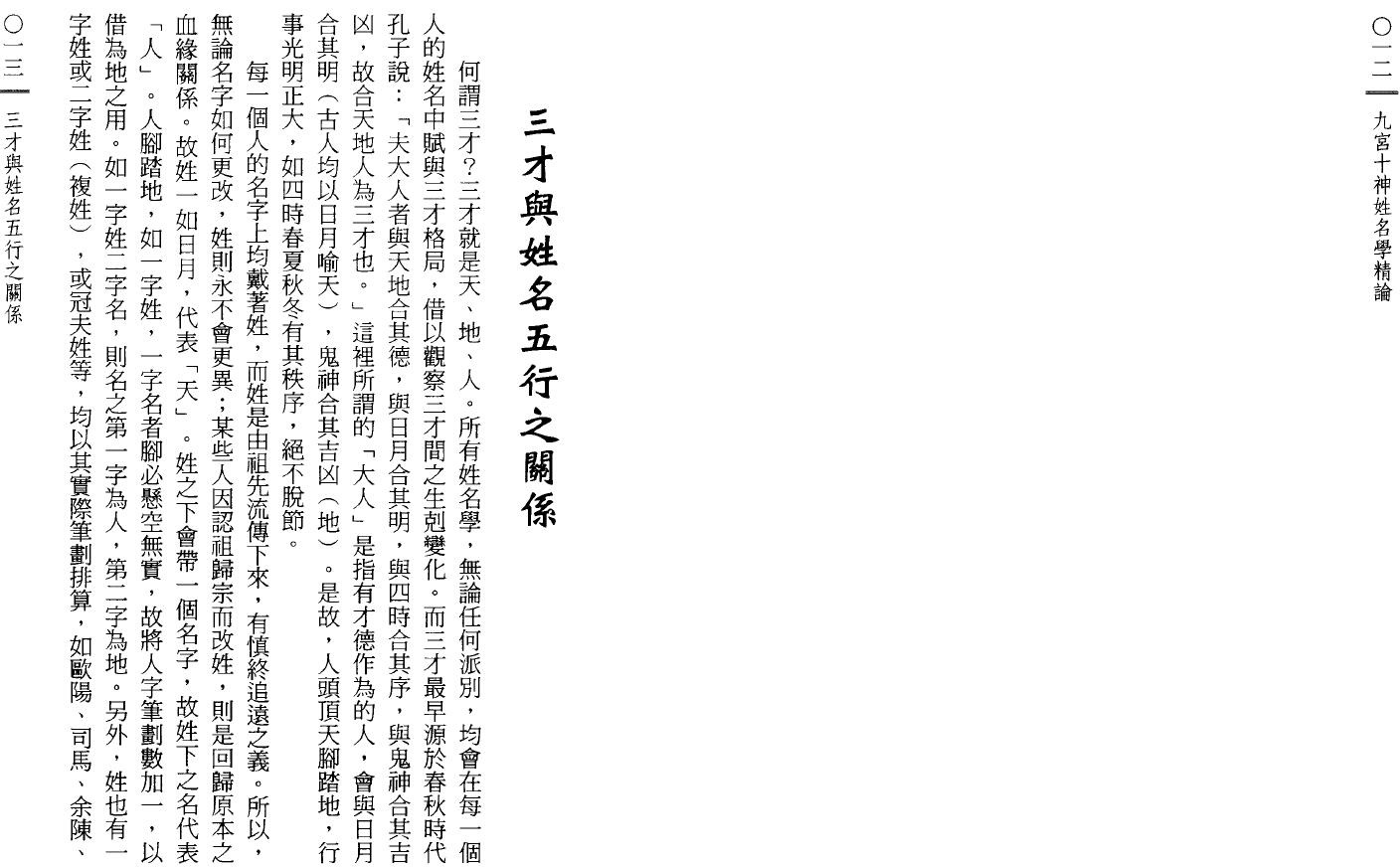
BOOK INFO:
- Publication Date: 未知
- Language: 中文
- Identifier: 内部视频
- Total Pages: 1
- File Type: PDF
Download Link:
Payment Method:
1、Open Tittle
2、Click to Pay New
3、Click on the material you want to buy
4、Click on "Payment Methods"
5、Click on the material you want to buy
6、Choose from one of your existing payment methods or add a new one
7、Complete purchase
NOTE: If you are unable to make a payment or require manual assistance, please contact me at: Email: [email protected]
